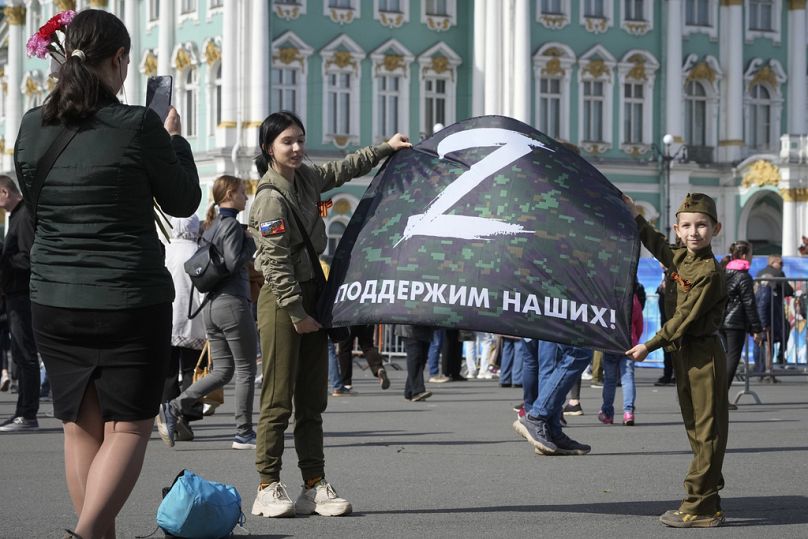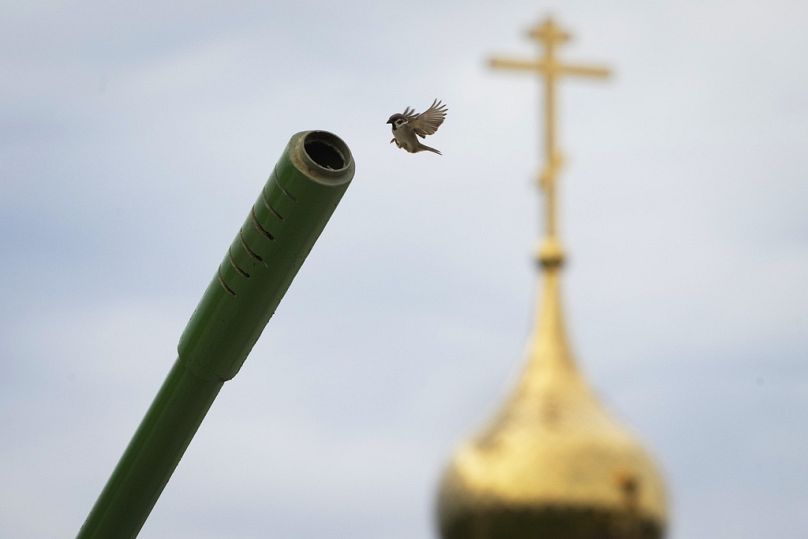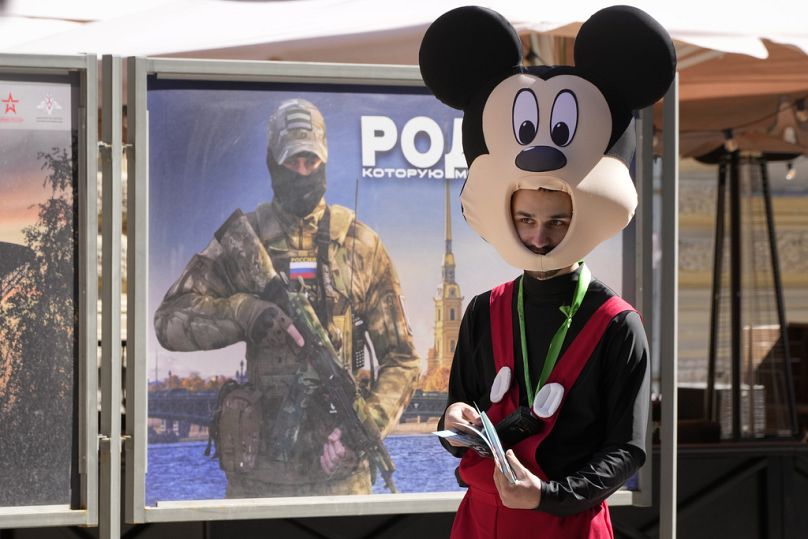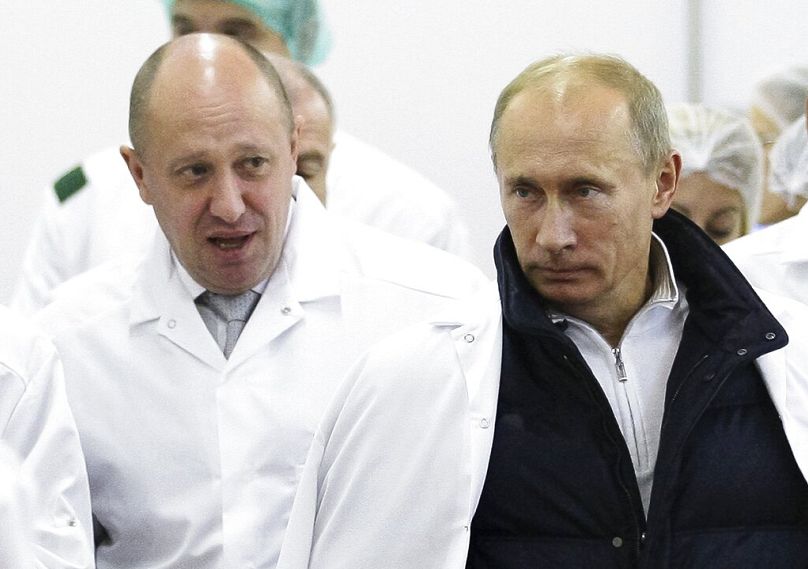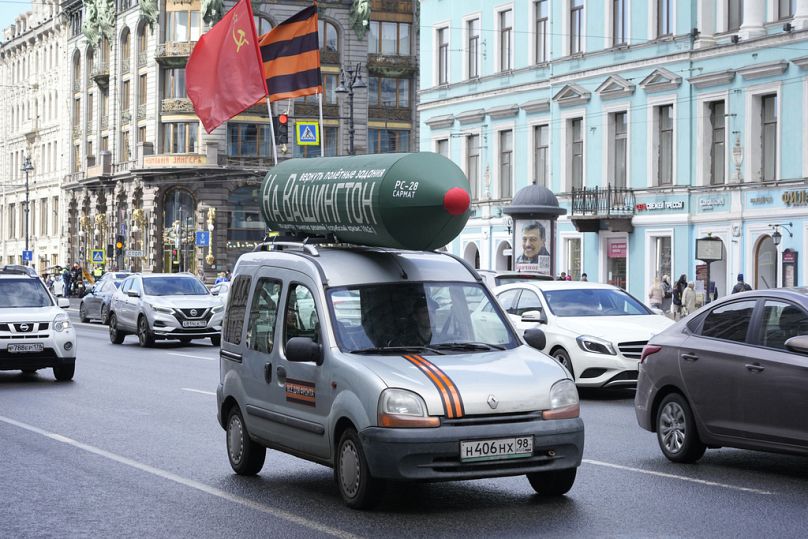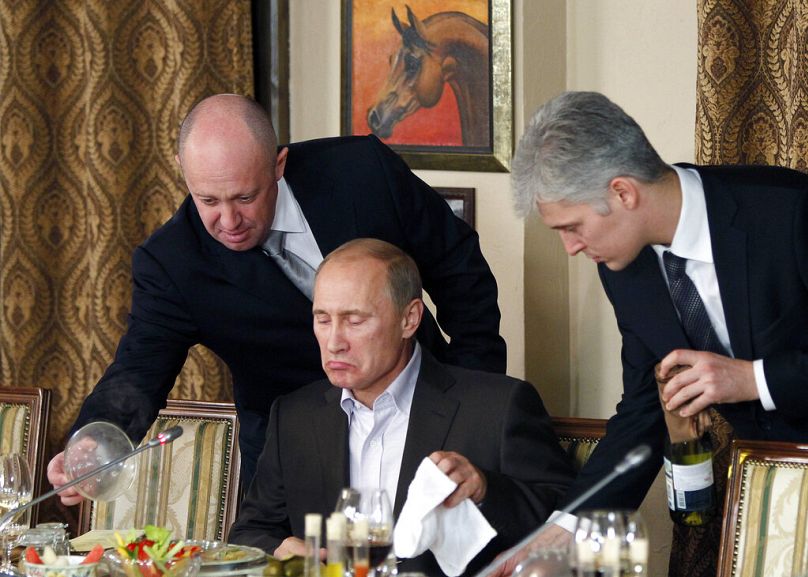It is clear that Prigozhin’s ambitions cannot be curtailed, as he is the type of character who lives for times like these — bloody and chaotic, Aleksandar Đokić writes.
The frightening grimace of Yevgeny Prigozhin, the infamous leader of the Wagner Group, amidst one of his ever-increasing rants, has already become an internet meme.
The scene from early May captured Prigozhin’s most theatrical media appearance, in which he threatened and cursed at the Russian military leadership — Defence Minister Sergey Shoygu and Army's Chief of the General Staff Valery Gerasimov.
How is a violent outburst of the owner of the most notorious paramilitary mercenary group in the midst of a Kremlin-led war of aggression possible in a centralised, full-blown autocracy such as Vladimir Putin's Russia?
This is the ultimate question, while at the same time, any debate on Prigozhin should be about the way Russia’s elites are made and how they tend to operate.
Prigozhin's bloodthirsty mercenaries come to the fore as Russia's army falters
Before the full-scale invasion of Ukraine in 2022, the Wagner Group was used as a military tool for limited interventions that came with plausible deniability — which in practice wasn’t very plausible, despite the Kremlin squarely rejecting any official ties between Prigozhin's mercenaries and the Russian state.
What is important is not that the Kremlin was lying — by now, most people are aware they do that on a daily basis — but the fact that Wagner’s role was never to step into the boots of the Russian army, but rather to appear in places and capacity Moscow would not publicly confess to.
Despite that, Wagner was never meant to be a clandestine tool. It always represented a blunt instrument of force to be only occasionally applied.
But then, Putin’s Russia never waged total war as it has done in Ukraine since last year.
If we look back to the early days of the invasion, Wagner wasn’t mentioned or given any importance by the Russian propagandists or Western analysts.
Rather, early independent analyses, which came out during the first phase of the war, spoke of a decentralised network of mercenary units not under Prigozhin’s command.
As the official Russian army failed to show results and its offensive capacity was brought into question after the army command’s lack of military nous saw its special forces decimated during the first phase of the war, Prigozhin was given a new task by the Kremlin: to storm the most heavily-fortified urban positions of the Ukrainian army.
This meant that Putin had given Prigozhin not only a new role but also a new position in the hierarchy of the Russian elites. Prigozhin was needed after Shoygu and Gerasimov failed to impress.
Contemporary Russia was built on kicking others while they were down
Putin was always seen as a sort of arbiter between the various parts of the Russian elites.
Before the invasion, when the system of governance was stable, all kinds of positions within the state and state-owned companies were divided on the basis of limited internal competition and, ultimately, compromise.
Russian elites have not been meritocratic since the time of Tsar Peter I and his vision of the society inspired by the Germanic/Protestant proto-capitalist system he came to observe as a young man.
Since then, for centuries, one would rise through the ranks of Russia’s elites through a combination of pleading for favours from those above and backstabbing of one's peers.
There were periods of great instability — a commonly used euphemistic trope for the Russian political system completely collapsing from within — yet, each time, a newer version of the same kind of corrupt structure of elites bubbled back to the surface.
In Putin's times, this was further entrenched by his own calculated ruthlessness, coupled with access to unimaginable, nearly endless wealth for his privileged and carefully selected followers.
It's that exact blend of cold yet brutal efficiency Putin had shown while creating his pyramid of power he banked on when he embarked on his war against Ukraine.
The tables are slowly turning
Yet today, Russia is bogged down in a war which it cannot possibly win, as the goal of subjugating Ukraine is clearly out of reach. In turn, this has expectedly shaken the otherwise stable structure of elites for the first time since Putin came to power.
The roles which were doled out before have less meaning now.
The profit margins for Putin’s officials and oligarchs went down since the trade with the West has almost completely ceased.
Their favourite holiday destinations in southern Europe shut their doors to them and their kin.
But more importantly, Putin’s political future became unclear, and being completely invested in his Z-imperialism is starting to feel like it might lead to a loss of political future and even freedom for the more prominent members of the Russian elite.
All of these factors make rationalising the situation the only viable option, at least for the economic and purely political parts of Putin’s elites.
What final choice they will make and when they will make it depends on the further course of the war. But rest assured — they are already making post-Putin calculations.
The shark tank Putin built was made for the likes of Prigozhin
On the other hand, the security and military parts of the elite do not have much room to manoeuvre, as their hands are covered in blood.
The only way out for them is to defect, but there are life-threatening risks involved in such an endeavour and the war could still be transitioned into a state of protracted conflict — although victory is now completely off the table — prolonging their existence.
In this particular shark tank, brazen criminal types like Prigozhin are the ones that thrive, as these are their natural surroundings.
Such vicious characters have appeared throughout Russia’s history whenever its system was thoroughly destabilised.
While Prigozhin was a political nobody and barely a middling mobster in practice when the up-and-coming Putin discovered him in St Peterburg in the 1990s — just to turn him into nothing more than the tip of the tool to be used at will in Syria and Africa before the Ukraine war — he has now risen to an organiser of a de facto distinct army in its own right.
At the same time, no one without a trusted inside source in the Kremlin or other type of intelligence knows how much power among the elites Putin has left.
Can he control Prigozhin like before? Can he order Prigozhin to be assassinated if he disobeys? Does he even receive all the information he needs to make a cold, calculated, yet rational decision? The answer is uncertain.
What is clear is that Prigozhin’s ambitions cannot be curtailed, as he is the type of character who lives for times like these — bloody and chaotic.
In Prigozhin's eyes, the world is his oyster
What does Prigozhin want? Like any mafioso, he wants the world. He wants everything.
That’s why he’s getting stronger while ordinary Russian officials too involved in corruption for personal gain keep getting weaker.
Shoygu just wants a piece of the cake that he's more than happy to share. Prigozhin wants the whole thing, and what he can’t swallow he’d rather throw on the ground to stomp on, rather than let any other fat cat take it.
At the moment, Prigozhin has not criticised Putin directly, which, at the very least, means that he still needs legitimacy only Putin can provide him with.
On the other hand, Prigozhin's harsh criticism peppered with expletives which acts as a slap in the face of the Ministry of Defence and the General Staff also implies Putin’s poor leadership.
If Putin is the all-knowing, five-dimensional chess-playing strategic genius, how did he then allow the striking incompetence of the army, which Prigozhin vividly describes, to grow until it festered so badly?
How can this be interpreted in any other way than Putin’s personal responsibility if he indeed is Russia’s informal emperor?
This is the question Prigozhin is now posing for everyone to see, even if the federal Russian channels still don’t broadcast his Telegram videos to the general public.
The emperor's thumb is still up — for now
Yet, Prigozhin still lives to see another day, and this could be for several reasons.
For one, Putin might need him so badly that he is allowing him to spread internal strife in the army and among the elites.
Another possibility is that Putin no longer has the ability to control or replace him — which means the current conflict between Prigozhin and the army leadership will escalate further and have palpable consequences.
Meanwhile, the political and economic elites are scared out of their mind at the mere sight of Prigozhin and his cutthroat army, and they know that he will come to shake them down next if he is not neutralised.
And the image of a ranting, mad, wild-eyed Prigozhin surrounded by bodies of dozens of dead Wagnerites in Ukraine is just as haunting as the question that keeps growing louder in Moscow each day: “What has Putin gotten us into and how do we get out until it’s too late?”
Aleksandar Đokić is a Serbian political scientist and analyst with bylines in Novaya Gazeta. He was formerly a lecturer at RUDN University in Moscow.
This article was originally published on 22 May 2023.
At Euronews, we believe all views matter. Contact us at view@euronews.com to send pitches or submissions and be part of the conversation.












